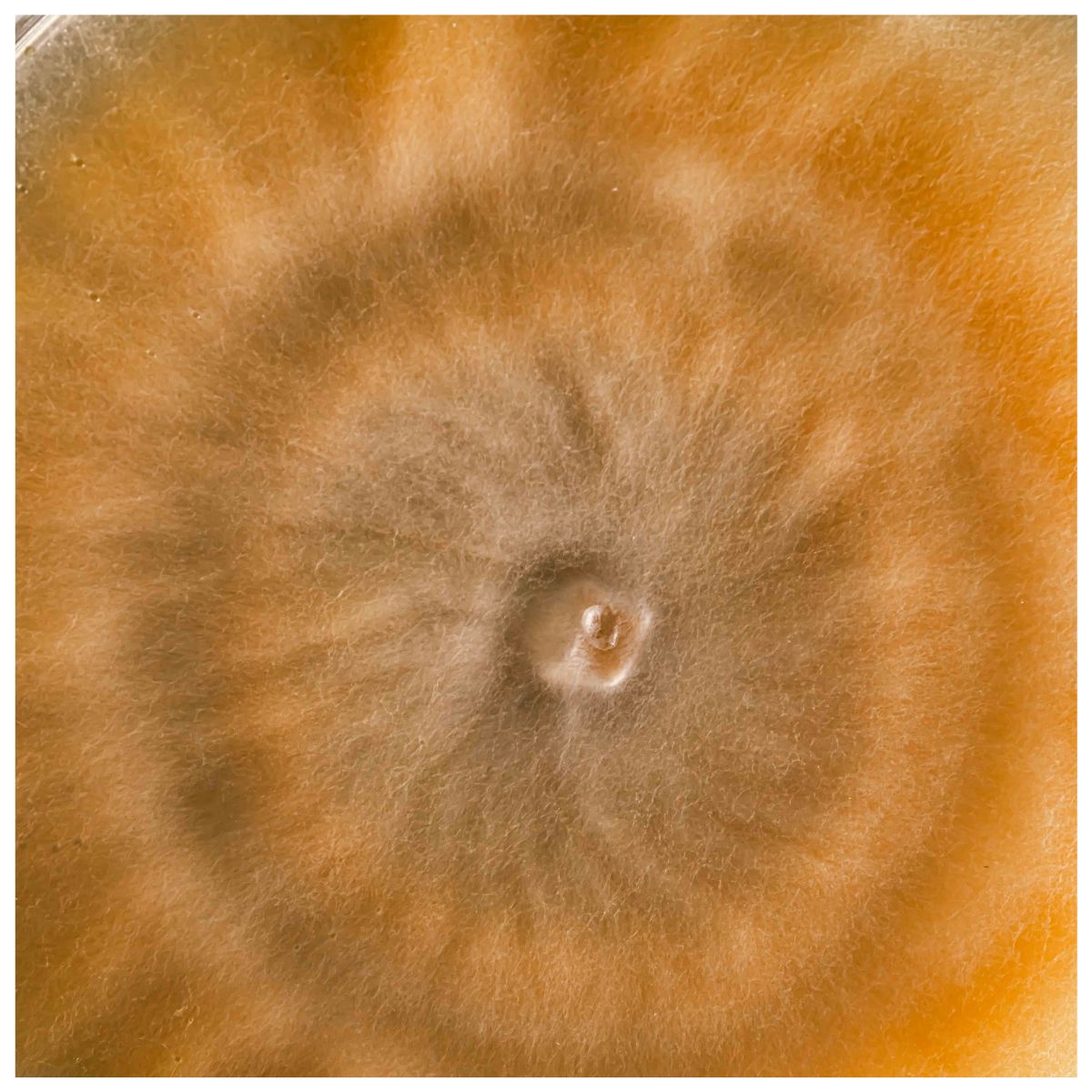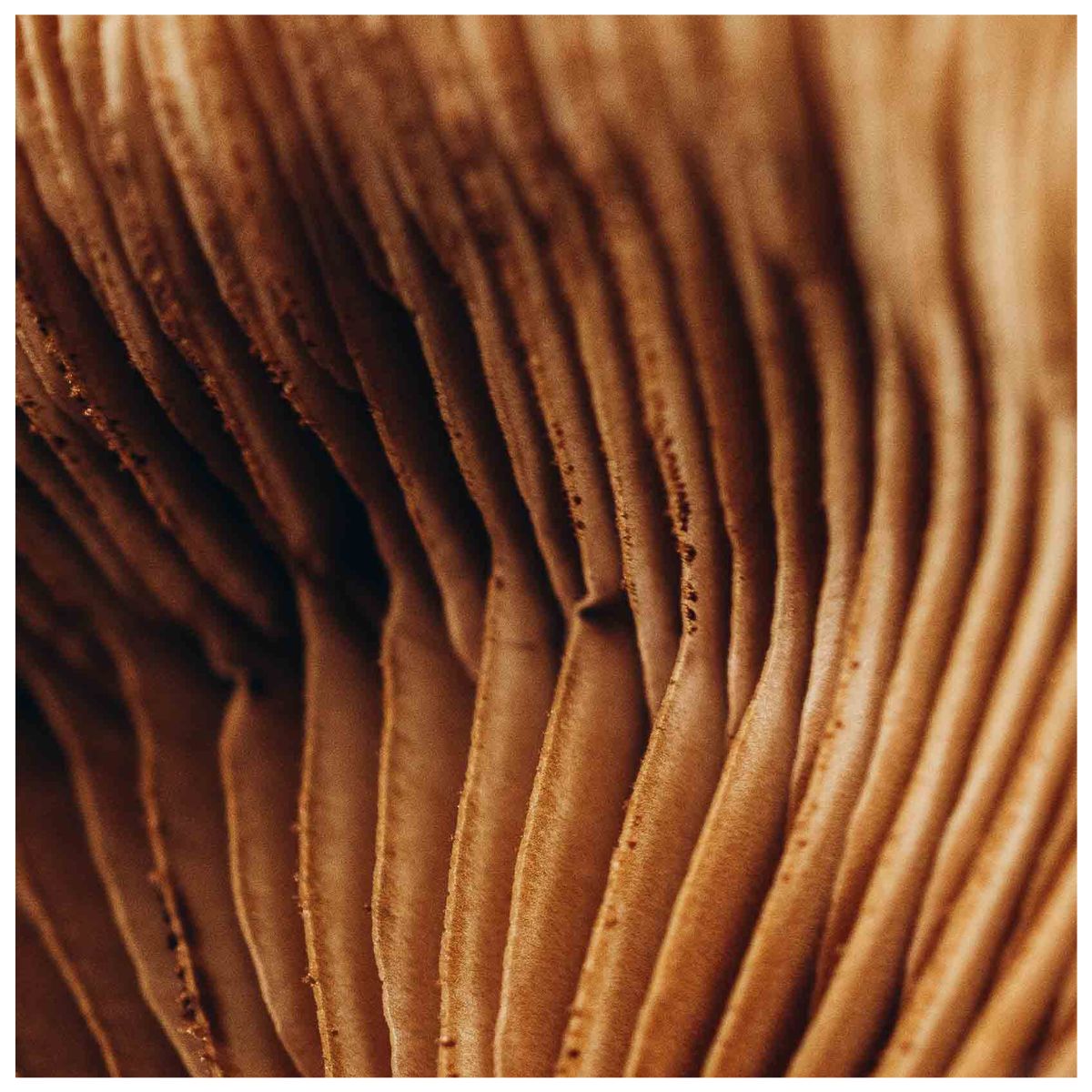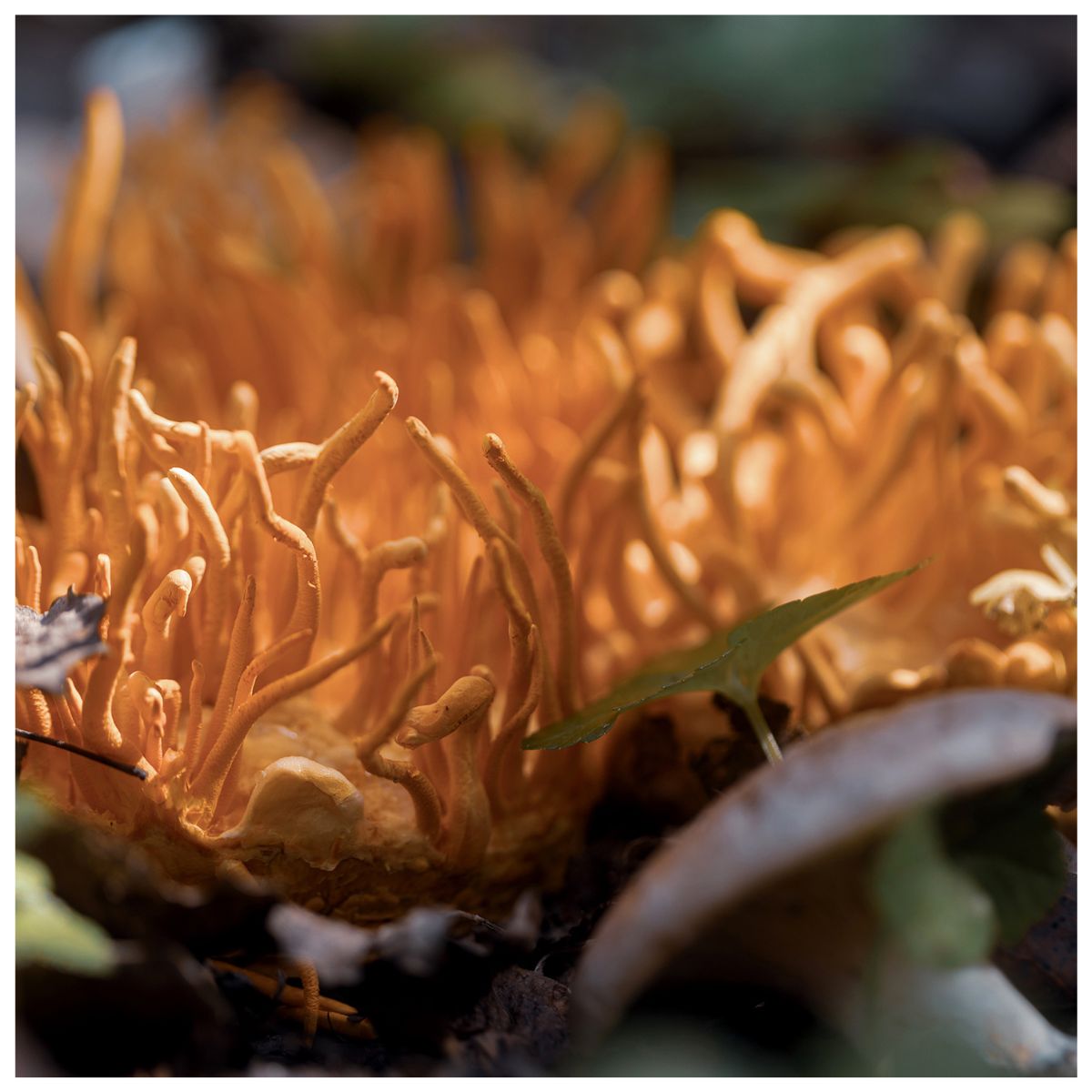Depression is a common mental health condition that affects millions of people. While antidepressants are the most common means of treating depression, research into natural remedies like medicinal mushrooms is becoming increasingly common.
Cordyceps has been used in Eastern and traditional Chinese medicine for thousands of years. While it is not a substitute for prescription depression medications, various studies show that it has antidepressant properties that help with mental health.
Before we dive into Cordyceps, let's understand a little more about what depression is?
Depression is a mental illness that makes people feel sad and hopeless, and lose interest in things they once enjoyed. It can affect the way a person feels, thinks, and behaves, and lead to a number of other emotional and physical problems, such as changes in appetite and sleep, fatigue, and problems concentrating.
Symptoms of depression
There is a range of symptoms of depression, some mild and some severe, and people typically experience them throughout most of the day. Many patients with depression experience symptoms severe enough to interfere with functioning in daily activities such as work, school, social activities, or relationships with others:
- Feelings of sadness, emptiness, and hopelessness
- Anger, impatience, or frustration
- anxiety
- Feelings of worthlessness or guilt
- Loss of pleasure or interest in most or all activities previously enjoyed
- Sleep problems – excessive sleeping or insomnia
- Chronic fatigue and lack of energy
- Reduced appetite and weight loss or increased appetite and weight gain
- Difficulty thinking, concentrating, and remembering things
- Suicidal thoughts or attempts
- Unexplained physical problems, such as back problems, muscle spasms, or headaches
What causes depression?
Researchers do not know the exact causes of depressive behaviors, but believe there are several contributing factors, including:
- Brain chemistry: An imbalance of neurotransmitters like serotonin and dopamine may be a contributing factor to depression.
- Genetics: A person with a first-degree relative (biological parent or sibling) who has depression is three times more likely to have the disorder than the general population. However, a person can suffer from depression without a family history of the disease.
- Difficult life events, such as the death of a loved one, trauma, divorce, loneliness, and lack of support, can all lead to depression.
- Chronic pain and chronic illnesses such as diabetes, multiple sclerosis, Parkinson's disease, and dementia can contribute to depression.
- Some medications for chronic illnesses come with a host of side effects, including depression. Drug use can also cause or worsen depressive behavior.

Depression treatment options
Depression is one of the most treatable mental illnesses if you seek help early. Some of the most common treatment options include:
1# Cognitive Behavioral Therapy (Psychotherapy)
2# Medications:
Antidepressants can help change the brain chemistry that causes depression. Some antidepressants have side effects that usually go away over time.
3# Complementary medicine:
Treatments such as acupuncture, massage, hypnosis, and biofeedback that are provided in addition to prescription medications.
Cordyceps is 100% nutritious and beneficial for mental health. Cordyceps can relieve symptoms of anxiety, reduce symptoms of depression, and increase cognitive function, leading to a healthy brain.
Can Cordyceps help with depression?
Cordyceps has long been used in Eastern and Chinese medicine to treat a variety of ailments, including mental health issues. Recent studies on the antidepressant effects of cordyceps have yielded promising results, suggesting that it may offer a natural and effective treatment alternative for those suffering from depression.
Although we still have much to learn about Cordyceps and depression, researchers suggest several possible mechanisms by which Cordyceps may help treat depression. These include modulating neurotransmitters in the brain involved in mood regulation, reducing neuroinflammation, and reducing oxidative stress.
Let's dive into more details about each of them.
Does Cordyceps increase serotonin levels?
The cordyceps mushroom may affect serotonin levels in the brain.
Serotonin, or the “feel-good hormone,” is an important neurotransmitter that regulates emotions, stress, hunger, sleep, and mood, so it’s important to have adequate levels of it in the brain. Patients with depression often experience depletion of serotonin levels.
Cordyceps has been found to help increase serotonin in the brain, thereby showing antidepressant-like behavior. One study sought to discover the effect of Water Cordyceps militaris (WCM) extract on rats with abnormal behavior induced by chronic mild and unpredictable stress. The extract was able to prevent anhedonia (depression-like behavior) and hypoactivity (reduced physical activity) at all doses.
Cordyceps reduces the turnover rate of serotonin and dopamine.
Serotonin turnover rate refers to how quickly the neurotransmitter is broken down and used by the brain. When the turnover rate is slow, serotonin breaks down more slowly and stays in the brain for a longer period of time. This results in increased levels of the feel-good hormone, which leads to improved mental health and reduced symptoms of depression.
Did you know that Cordyceps mushrooms are rich in tryptophan? Tryptophan is an amino acid precursor to serotonin, meaning our bodies use tryptophan to produce serotonin.
Cordyceps also contains cordycepin and adenosine , the main active ingredients in the fungus that can stimulate the release of serotonin in the brain. Research on the interaction between adenosine and cordycepin has revealed that:
Cordycepin also plays an important role in improving psychiatric disorders, including major depressive disorder (MDD) and anxiety disorder. Studies on depression have shown that cordycepin consumption led to a rapid and potent antidepressant effect, which may be mediated by several beneficial mechanisms, particularly in the regulation of the prefrontal AMPA receptor signaling pathway.
Adenosine has sedative properties that can relieve symptoms of anxiety and depression. It attaches to receptors in the brain that control sleep and mood, providing a relaxing and calming effect. Due to its chemical structure rich in adenosine, cordyceps can improve sleep quality in healthy people and those struggling with depression.

Does Cordyceps affect dopamine levels?
Cordycepin has been shown to increase dopamine levels in the brain. Dopamine is an important brain chemical—another feel-good hormone—that regulates mood, stimulates and reinforces pleasurable experiences, and influences the activity of other neurotransmitters (like serotonin). By increasing dopamine levels, cordycepin can relieve symptoms of depression and many other disorders.
Additionally, low dopamine not only seems to lead to depression but also impairs our energy metabolism, which works hard to prevent any mood disorders, so cordycepin is critical for maintaining healthy dopamine levels. It’s true what they say: a healthy mind in a healthy body.
Cordyceps, Inflammation, and Depression
Cordyceps has anti-inflammatory properties that may help with mental health. Inflammation has been linked to a variety of mental health issues, including anxiety and depression, and some believe that “depression, anxiety, and OCD are likely caused by mild inflammation in the brain.”
Cordyceps mushrooms are loaded with active ingredients that naturally reduce inflammation, with cordycepin and polysaccharides shown to reduce inflammation in the brain and body.
A 2014 clinical trial confirmed the anti-inflammatory potential of Cordyceps polysaccharides. These complex carbohydrates suppressed certain types of pro-inflammatory cytokines (IL-1, TNF-α, and COX-2), proteins that play an important role in mediating inflammatory responses. Reduced levels of cytokines and inhibition of their function lead to decreased inflammation in the body.
Cordyceps fights oxidative stress
Free radicals, or ROS, are unstable molecules that cause cellular and tissue oxidation. The imbalance between free radicals and antioxidants in our bodies can damage healthy cells and cause inflammation, increasing the risk of cell damage and chronic diseases such as Alzheimer's disease, cancer, and cardiovascular disease. Oxidative stress is a common trigger for depression.
According to research, people with depression typically have elevated levels of ROS. The study concluded that “in the absence of known causes of oxidative damage, the lower levels of antioxidants and higher levels of MDA [malonaldehyde] found in patients with major depression contribute to the high degree of oxidative stress in unipolar depression.”
The Cordyceps mushroom exhibits powerful antioxidant activity that may help protect against the effects of ROS.
The Cordyceps mushroom is an adaptogenic; It helps your body fight and adapt to stress. Adaptogens can be used to treat cancer, boost the immune system, and reduce inflammation in the body, but they are also helpful in reducing anxiety and depression.
Other benefits of the Cordyceps mushroom:
- Cordyceps promotes heart health
- Cordyceps can increase sexual function in men and women
- Cordyceps promotes digestive health
- Cordyceps increases energy levels
- Cordyceps can improve athletic performance
- Cordyceps may help you sleep better
- Cordyceps has anti-aging properties that help with skin health.
- Cordyceps prevents oxidative damage
- Cordyceps strengthens the immune system
- Cordyceps may reduce blood sugar levels
The best way to consume Mycospring Cordyceps
Mycospring's Cordyceps products are made from 100% fruiting bodies of the Cordyceps fungus in powder or in the form of whole, dried fruiting bodies.
Because of its energizing properties, we suggest consuming Cordyceps in the morning or early afternoon. It is best to avoid consuming Cordyceps mushrooms before bedtime.
Can Cordyceps be taken every day?
As long as you maintain the recommended dosage – no more than 5 grams of mushrooms per day – you can consume them daily and enjoy the many benefits of Cordyceps.
Is Cordyceps safe to use with antidepressants?
From the literature and our experience, there is no reason to take Cordyceps along with antidepressants. We recommend starting to take it at the same time and see if there is a change in your mood, both physically and mentally. If you feel an improvement, you can gradually, in consultation with a doctor, reduce the dosage of the medication.

Who should not take Cordyceps?
Cordyceps mushrooms are generally considered safe for most people. However, some people should avoid them or use them with caution. If you are allergic to mushrooms, mold, or yeast, or have a history of allergic reactions to other types of mushrooms, be careful when consuming cordyceps.
Before taking cordyceps during pregnancy or breastfeeding, consult your doctor.
If you are taking any medications, contact your doctor before starting cordyceps consumption.












































Leave a comment